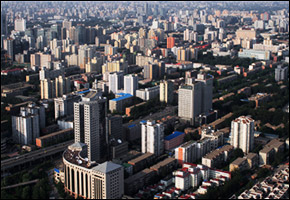Beijing Sets Water Example for Future Olympics, Report Says

China’s water policy for the Beijing Olympics was given a thumbs-up by the United Nations Environment Programme (UNEP) in a report released earlier this year. Beijing exceeded the drinking water and wastewater management targets set in its bid to host the 2008 Olympics, demonstrating that mega cities have the capacity to minimize water consumption, maximize the use of available water and protect critical surface water resources, the report said.
“Beijing prepared impressively in these areas for the Olympic Games,” said Cy Jones, a senior associate at the World Resources Institute and lead author of two of the chapters in the report. “In the end, the city improved its drinking water, as well as its waste-disposal and recycling systems.”
According to the report, the city’s drinking water treatment plants met the new water quality guidelines set by the World Health Organization. Beijing also expanded its infrastructure, which treated 92 percent of the city’s wastewater during the games.
“A big step forward has been made by the Beijing municipality in terms of waste disposal and recycling,” said Hanqian Zhang, co-author of the report and researcher at the World Resources Institute. “Olympic bid commitments were achieved through effective infrastructure investment, wise urban planning, technology research and education programs.”
In addition to improving water quality, Beijing surpassed its goal of sorting 50 percent and recycling 30 percent of all solid waste produced within the city by 2008. Upgrades to the city’s waste disposal system allowed 52 percent of waste to be sorted and 35 percent to be recycled by 2007.
According to the report, Beijing’s water policies in preparation for the games should serve as an example for efficient management of limited water resources in other cities.
The authors of the study also encouraged the International Olympic Committee to promote the development of responsible water and wastewater management in future potential Olympic host cities.
Read more here, here and here.
Source: World Resources Institute, UNEP and UPI.
Connor Bebb assists in daily operations, aids in research, oversees social media outlets and develops social media strategies at Circle of Blue.






Leave a Reply
Want to join the discussion?Feel free to contribute!